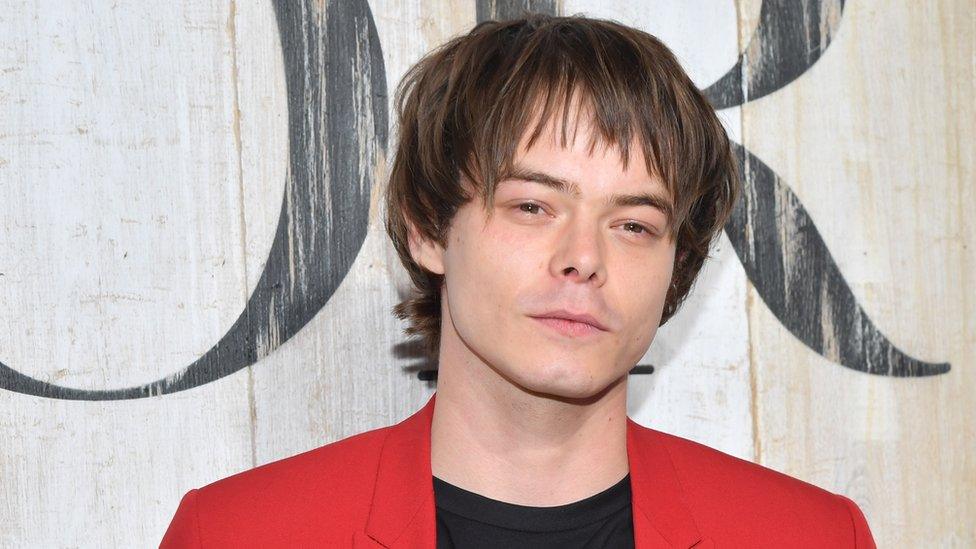What's different about the people in these posters?
- Published
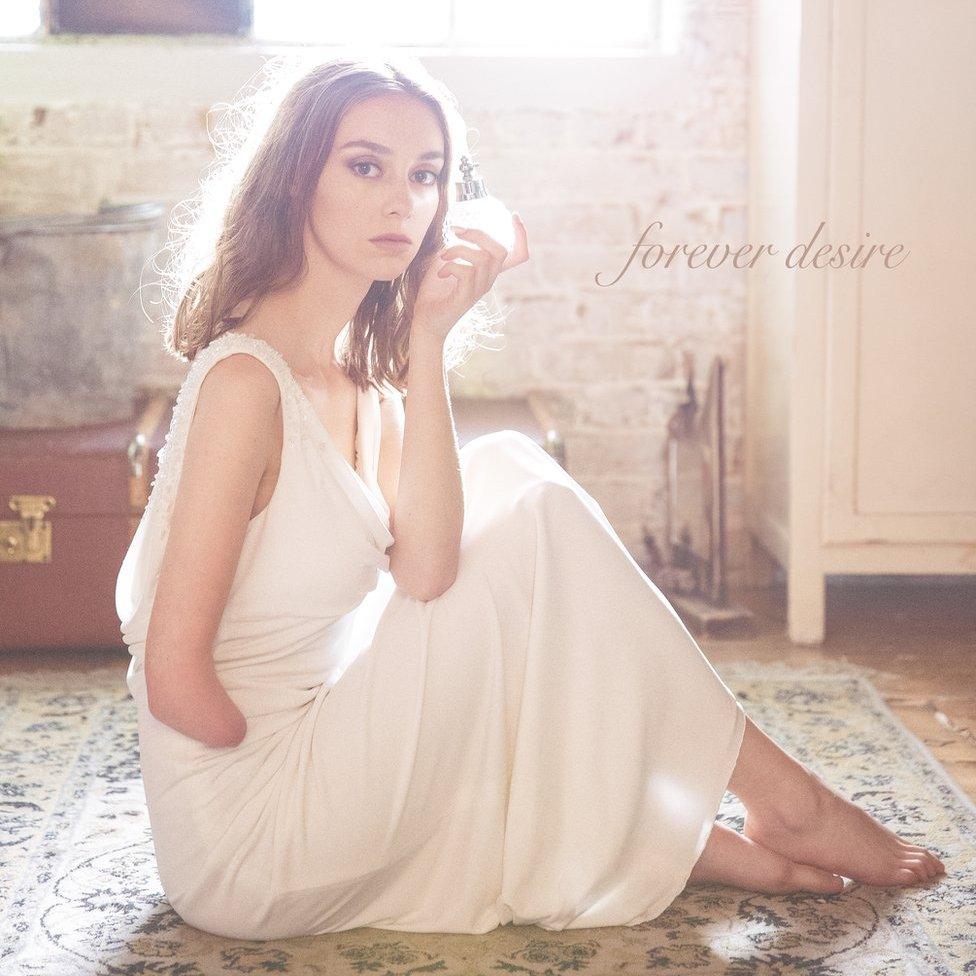
Grace Mandeville is an actor, model, vlogger, presenter, and one half of the Mandeville Sisters, a YouTube channel that explores fashion, style, body positivity and disability.
Grace, 23, was born with a foreshortened arm - her Instagram biography says: "I like clothes; I have one hand". Her sister Amelia has scoliosis - a sideways curvature of the spine - and some of the pair's most popular videos poke gentle fun at people's attitudes to disability.
But Grace's latest project, with photographer Linda Blacker, takes a more campaigning tone. More Than a Disability is a photography project starring disabled actors and models in roles that are usually given to non-disabled talent.
It features five mocked-up film and fashion posters, with the lead roles filled by people who, as the phrase goes, "just happen to be" disabled. The point is that disabled talent should be cast in roles that don't solely focus on their disability.
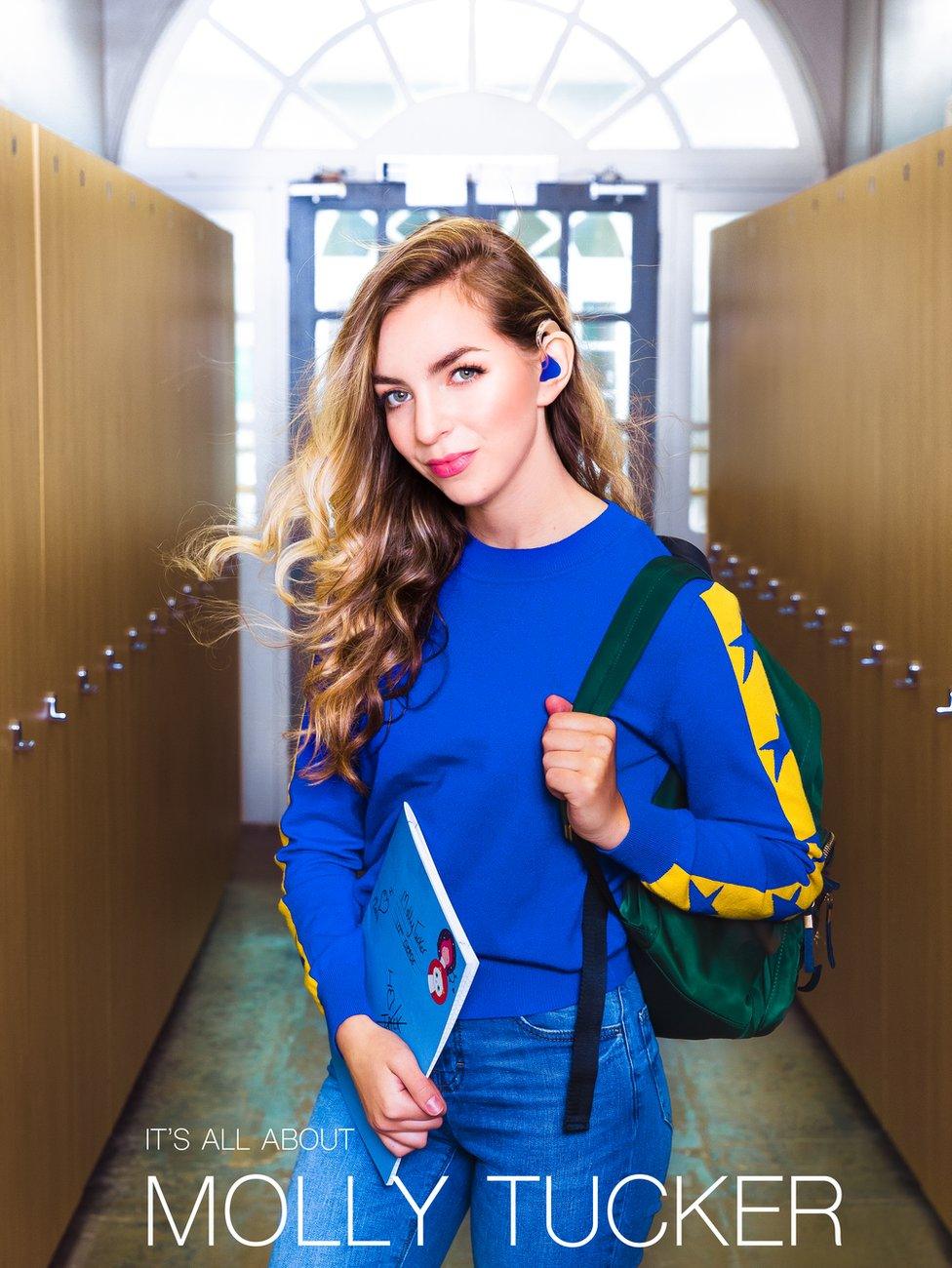
As a teenager Grace played a character called Holly in the children's sci-fi series Sparticle Mystery on CBBC.
"My character wasn't defined by [my disability], nor was it even mentioned," she says.
More recently she has given up auditioning for acting roles because she feels she only gets an invite to boost diversity figures.
"When I turned up to any audition, it'd be the same 10 disabled people - so we're either all on a list or we're not being called for our talents, just our disability," she says.
"We get far too many roles where the only opening for a disabled actor is a victim or a patient. Artists with disabilities need to be cast in the everyday roles where they portray the shopkeeper, the mother, the lawyer.
"We're not given a chance to play normal characters."
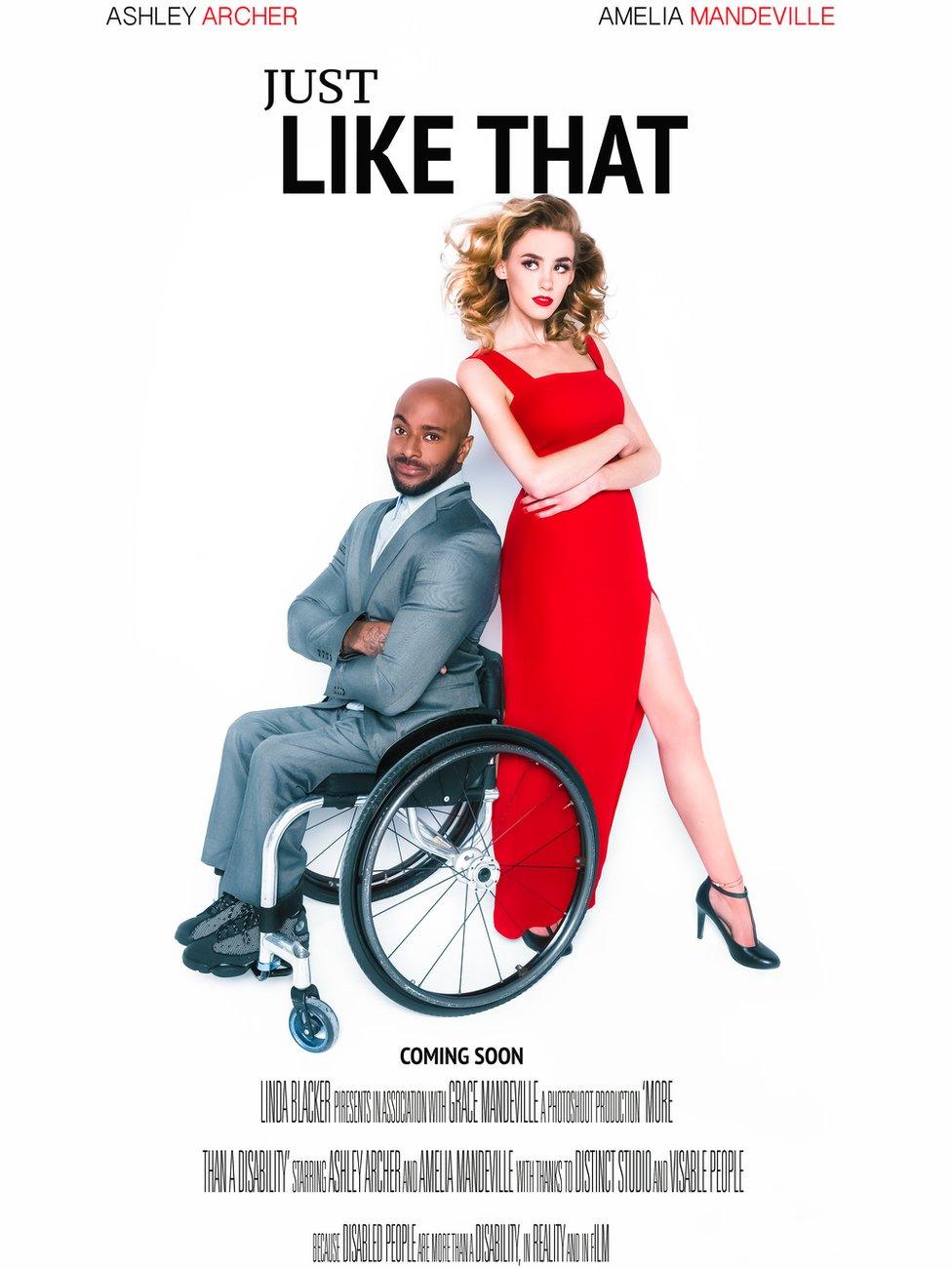

Grace's frustrations came to a head in April when she posted a photo on Instagram with the message that she was "feeling a little helpless".
"I want to see more disabled models in campaigns, I want to see disabled actors used in films rather than using able actors and then editing limbs out, or throwing them in a wheelchair," she wrote.
Allow Instagram content?
This article contains content provided by Instagram. We ask for your permission before anything is loaded, as they may be using cookies and other technologies. You may want to read Meta’s Instagram cookie policy, external and privacy policy, external before accepting. To view this content choose ‘accept and continue’.
Photographer Linda Blacker spotted the post and contacted Grace. The pair came up with the idea of the mocked-up posters and set about finding people to star in them.
In one, a perfume ad, Grace is the model and you have to look hard before you notice her shortened arm resting against her flowing, white dress.
A mocked-up romantic comedy poster features wheelchair racer and basketball player Ashley Archer and Grace's sister Amelia.
Deaf model, seven-year old Santiago Ospina Lozada, stars in a mocked-up fashion advert, while model Hannah Fisher - who is also deaf - becomes Molly Tucker in a mock teen drama.
Model and actor Jack Eyers features in a spoof 007 poster, sporting a prosthetic leg.
"Superheroes wear metal all the time," Grace says. "In Mad Max, the main character's played by Charlize Theron but her arm's been green-screened out [and a prosthetic arm put in] ... and yet I own a robot arm."
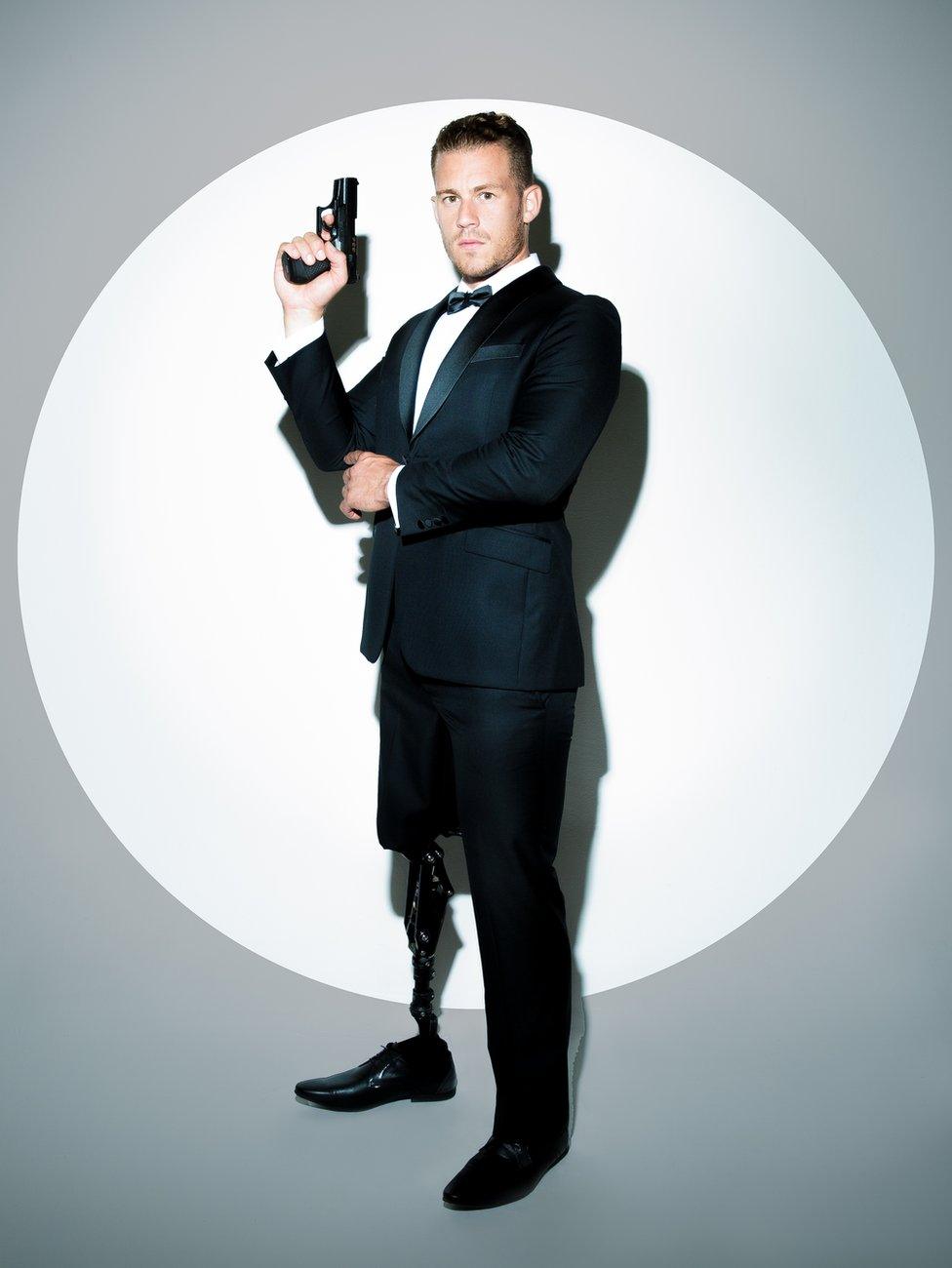
"We need to start including disabled characters who are cool - like a bad-assed superhero," says Grace. "Why doesn't one of the main characters in Killing Eve have a missing leg? There's no reason these characters can't be disabled as well.
"I get you need Hollywood actors, but sometimes you need to take a chance. Portray a cool disabled person and the rest of the world will take notice."
The topic of "cripping up" - where an able-bodied person plays a disabled person - is a hot one.
The most recent controversial appointment is Charlie Heaton, who is set to star in a remake of Elephant Man for the BBC.
The Stranger Things actor will play Joseph Merrick who was born in 1862 and had proteus syndrome, which causes overgrowth of the bones, skin and other tissues. He ended up in a "human oddities show" in London.
It was initially thought Merrick had neurofibromatosis which causes non-cancerous tumours to grow on nerve tissue, something actor and presenter Adam Pearson has and who many thought should have at least been invited to audition.
Pearson, 33, told national news and talk radio station LBC, external: "I would have liked to have gotten a phone call. Bearing in mind that I have the condition, I'm an actor, I've been in a Bafta-nominated film, I did a documentary for the BBC on freak shows around Joseph Merrick.
"The job ultimately should go to the best actor, however, actors with the condition you're trying to portray should absolutely be the first port of call - irrespective of how much extra effort that is."
Grace and Linda's version of an equal film and fashion future has been released on social media with the hashtag, #morethanadisability.
They hope it will nudge the industry to take small steps in the right direction.

For more Disability News, follow on Twitter, external and Facebook, external, and subscribe to the weekly podcast.
- Published30 August 2018
